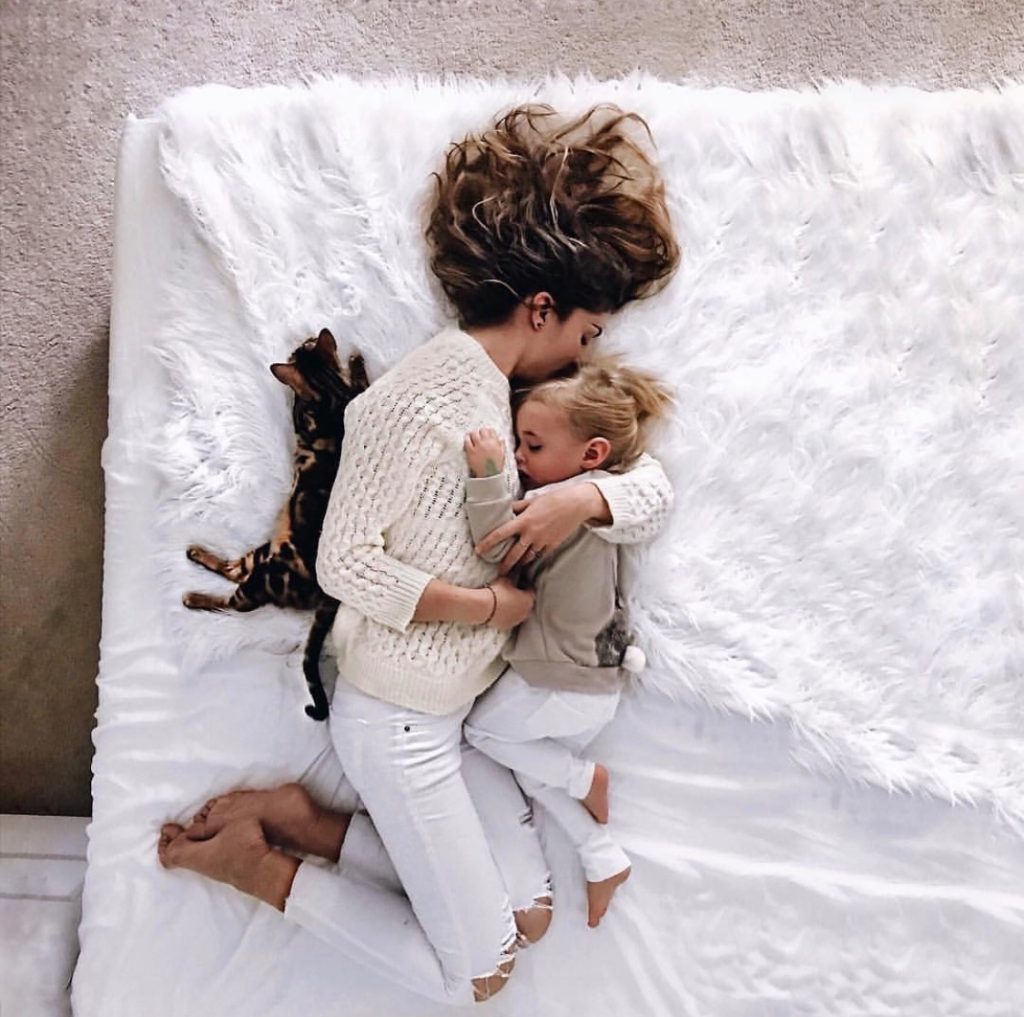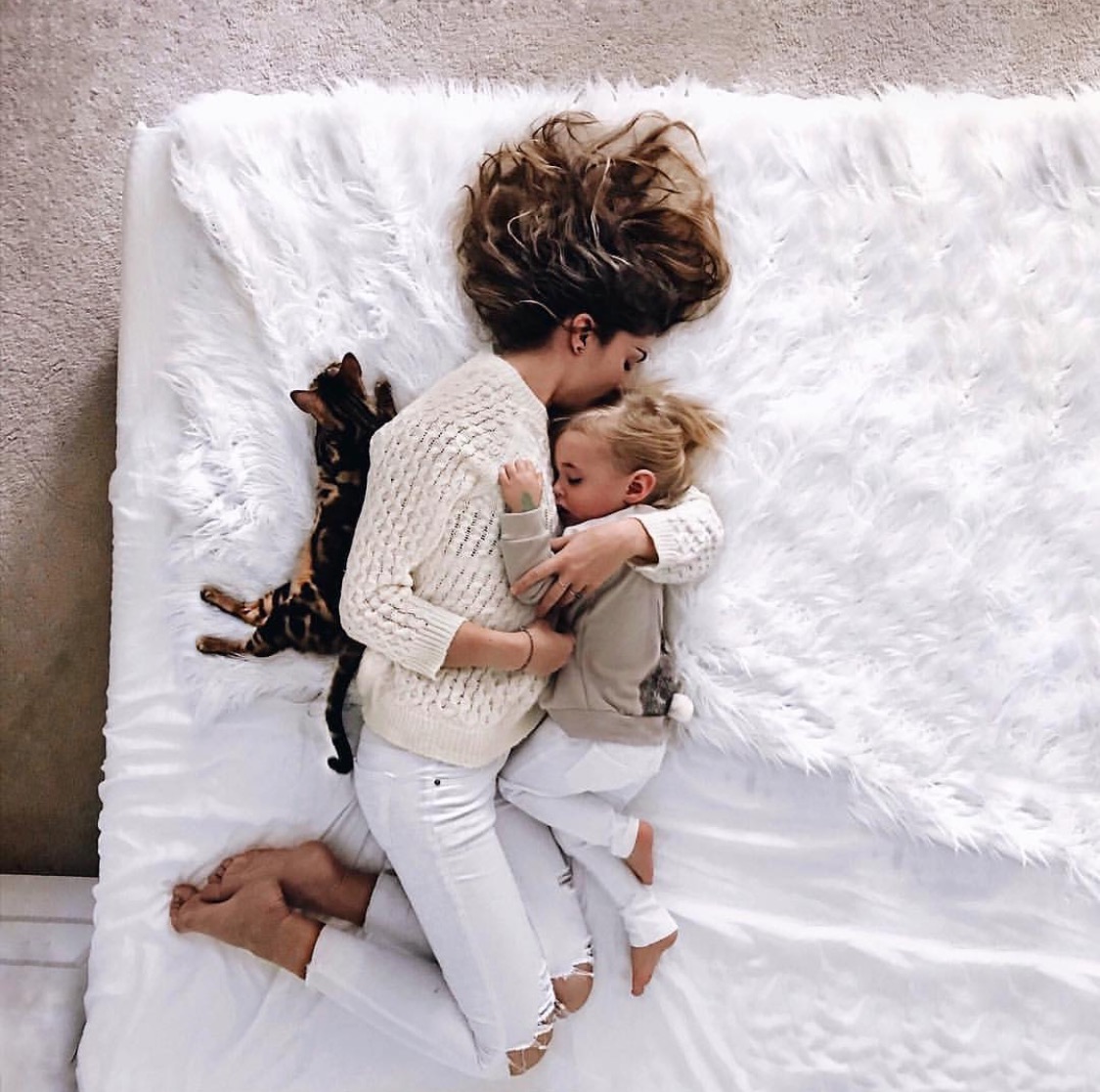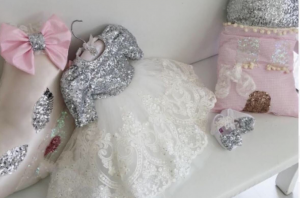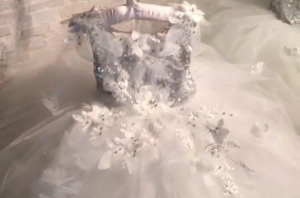
It’s hard enough for women to talk about not wanting to become mothers at all, or to admit it isn’t all its cracked up to be, but imagine the experience for women who straight-up discover it is not a good fit, a troubling experience, a series of disappointments, a bum deal? There is no good way to discuss this.
There are, of course, a plethora of reasons to moan about it: Parenting is hard, expensive, exhausting, and extraordinarily limit-testing. It is the sort of endeavor that forces you to reconcile your worst self with your best self, often multiple times a day. For women it is especially tricky — the more we inhabit identities as equals, free to pursue our own paths, the harder it is to automatically identify with a role that requires the utmost deference, sacrifice. Especially when it still involves more housework.
And this is to say nothing of just those logistics in the first few months postpartum, when there is never a more tenuous time in the identity of a new, uneasy mother, struggling to sail through what has been sold to you as effortless and natural, but is anything but: learning a baby.
Of course, for most people, myself included, time passes, you figure it out, and the surge of love and adoration and commitment to your child easily outweighs the hard stuff — it is never a question of regret. (There is also the entire emotional cottage industry of don’t-regret-it-but-still-have-twinges-of-missing-the-old-life, which I believe is simply called Being a Parent). But that isn’t how everyone feels. It’s complicated. I’d imagine most women who do actually feel they regret being mothers are loathe to admit it, lest they be vilified as monsters. But like everything, it’s just more complex than either loving parenting or not.
Let’s clear a few things up:
Some women who WANT to be mothers should not be.
Some women who would be GREAT mothers don’t want to be.
Some women who feel terrible about their mothering skills are actually terrific mothers.
Some women who think they are great at it are actually really bad.
Some women who admit they hate it do a good job anyway.
I’m thinking here of Isabella Dutton, a 57-year-old woman who wrote a brazen thing for the Daily Mail last year waxing about how having kids was the biggest mistake of her life, a realization which hit her a mere five days into her firstborn’s existence. Dutton wrote:
It’s hard enough for women to talk about not wanting to become mothers at all, or to admit it isn’t all its cracked up to be, but imagine the experience for women who straight-up discover it is not a good fit, a troubling experience, a series of disappointments, a bum deal? There is no good way to discuss this.
There are, of course, a plethora of reasons to moan about it: Parenting is hard, expensive, exhausting, and extraordinarily limit-testing. It is the sort of endeavor that forces you to reconcile your worst self with your best self, often multiple times a day. For women it is especially tricky — the more we inhabit identities as equals, free to pursue our own paths, the harder it is to automatically identify with a role that requires the utmost deference, sacrifice. Especially when it still involves more housework.
And this is to say nothing of just those logistics in the first few months postpartum, when there is never a more tenuous time in the identity of a new, uneasy mother, struggling to sail through what has been sold to you as effortless and natural, but is anything but: learning a baby.
Of course, for most people, myself included, time passes, you figure it out, and the surge of love and adoration and commitment to your child easily outweighs the hard stuff — it is never a question of regret. (There is also the entire emotional cottage industry of don’t-regret-it-but-still-have-twinges-of-missing-the-old-life, which I believe is simply called Being a Parent). But that isn’t how everyone feels. It’s complicated. I’d imagine most women who do actually feel they regret being mothers are loathe to admit it, lest they be vilified as monsters. But like everything, it’s just more complex than either loving parenting or not.
Let’s clear a few things up:
Some women who WANT to be mothers should not be.
Some women who would be GREAT mothers don’t want to be.
Some women who feel terrible about their mothering skills are actually terrific mothers.
Some women who think they are great at it are actually really bad.
Some women who admit they hate it do a good job anyway.
I’m thinking here of Isabella Dutton, a 57-year-old woman who wrote a brazen thing for the Daily Mail last year waxing about how having kids was the biggest mistake of her life, a realization which hit her a mere five days into her firstborn’s existence. Dutton wrote:
Even now, 33 years on, I can still picture the scene: Stuart was asleep in his crib.
He was due to be fed but hadn’t yet woken.
I heard him stir but as I looked at his round face on the brink of wakefulness, I felt no bond. No warm rush of maternal affection.
I felt completely detached from this alien being who had encroached upon my settled married life and changed it, irrevocably, for the worse.
It wasn’t postpartum, she insists. It wasn’t the baby blues, and she wasn’t just exhausted:
Quite simply, I had always hated the idea of motherhood. In that instant, any lingering hope that becoming a mum would cure me of my antipathy was dispelled.
I remember asking myself, ‘Is he really mine?’ He could, quite literally, have been anyone’s baby. Had a kind stranger offered to adopt him at that moment, I would not have objected.
Still, I wished no harm on Stuart and invested every ounce of my energy in caring for him. Even so, I know my life would have been much happier and more fulfilled without children.
She goes on not just to chronicle how unfulfilling raising the little bugger was, but she also goes on to have another child, a daughter, which is equally unfulfilling. And yet, she still cares for them and parents them, even her adult daughter who is now bed-ridden with MS, and says she’d happily take her daughter’s illness upon herself. Dutton acknowledges that she knows she represents a parenting paradox: She is a “conscientious and caring parent – yet perhaps I would have resented my children less had I not been.”
But I think that while how she feels is not ideal, it’s not quite so paradoxical, because I would never assume that behind every good parent is an uncomplicated stream of boundless joy and enthusiasm. We’re flesh and blood here, people. She assumes that being a good parent must come with rampant excitement about the job at all times. It doesn’t. She assumes that being a good parent comes with wanting to be a parent your whole life, and it doesn’t. In part, I believe that even having this problem is a result of the extraordinarily unrealistic expectations put on women that not only should all women aspire to motherhood, but that all who do should feel deeply completed by the experience. If we did not expect this of women, we might not have such a weird secret shame spiral in some women when they discover they don’t feel “on message.” There might be more room for women to explore their feelings about parenting without feeling it’s an inevitable choice they have to love. Hey, motherhood/parenting IS a lot of wonderful, life-affirming things, but it’s not your entire identity. And believe me, there will be times you want to call in sick. The important thing is doing it anyway at those times. Trudging through.
This is what Charlotte Hsu learns in a recent piece at Salon called “When Motherhood Isn’t Wonderful.” Hsu admits she didn’t want to be a mother growing up. And having a baby meant struggling with the simplest things, like feeding him or dealing with hiccups. She, too, writes of this “paradox”:
I loved our baby more than I ever could have predicted.
As time went on, though, I found that I did not like being a mother.
Like so many new mothers, she felt shell shocked by the utter exhaustion, the dependency of this tiny creature, her inability to automatically soothe him or solve his problems effortlessly, as if she should’ve been designed to do it. She cried a lot. She missed her old life. Everyone said it would get better, but it didn’t.
Hsu’s essay differs in a significant way from Dutton’s — Hsu’s son had extreme colick, a state of inconsolable fussiness and crying that can go on for hours on end, for months, which wreaks havoc on new parents and understandably so. Not much is known about it still, though researchers now think it may have to do with gut bacteria.
That’s the thing about parenting, though: Ain’t nobody can tell you what it’s gonna be like. You can get yourself all psyched up for it, and still get thrown curveballs. You can be madly in love with the person you’ve made and quite literally ready to die for them. But the early shit, when you’re in the trenches, can feel like swimming in shit at the bottom of a deep well. Of shit. That’s just how it is, and there is no point in pretending otherwise. There is even a kind of beauty to figuring this out.
Hsu writes:
When finally, after much experimentation, we figured out what Max liked, it was almost as bad as not knowing: He’d fall sleep when we did squats with him in our arms.
The up-and-down elevator motion calmed him. So five, six, seven times a day, I strolled him around our block, doing crazy baby aerobics. Up! Down! Up! Down!
I got to know our neighbors. I lost all my pregnancy weight.
But I also lost myself; I had no life outside of Max. I became depressed. I started Googling things like “I hate being a mom.”
This breaks my heart to read, but I’ve been there, struggling to learn to breastfeed and feeling like an utter and complete failure, like someone missing the pieces everyone else seem to automatically come equipped with. Like Dutton, Hsu did what had to be done: She muddled through anyway. She got up every day. She did the work. Toward the end of her essay, she writes, “My husband and I are shells of the people we once were, but we can finally see glimmers of a better life ahead.” And in her bio, she tells parents she is “finally happy to be a mother.”
Before I had a baby, these are the kinds of stories that might’ve made me wonder if these women simply shouldn’t have had kids. But now of course I know that is an idiotic assumption, that everything is so much more complicated than that. And that people have kids under all sorts of circumstances, and that no one knows what it will really be like, much less what to prepare for. That is why support matters so much.
Even doing a great job can mean going through a roller coaster of emotions that don’t always sit pretty. Perhaps for many women it is, in fact, unadulterated joy, but that won’t help all the other women who aren’t so sure. What they need is not your judgment, but your compassion and support. And of course, so do their children, who need to be loved and parented no matter the storm weathered by their higher ups. I would normally expand this conversation to include fathers, but I think this is a unique issue for women as they opt more than ever out of motherhood — men have always been given the space to come at fatherhood reluctantly (it’s even celebrated when they do).
This is why speaking frankly about motherhood matters, and why support matters, because what any one woman cannot summon can be summoned by the village, if it exists. And what matters even more than that is giving women the resources to cope with whatever their experience is, and the space to sort through the complex feelings that accompany it, a way for a woman to be a mother and still human, still flawed, still something other than merely an endless vessel of giving. Because as in everything, what we think we “want” is but a sliver of the picture.
By Tara Jacoby





